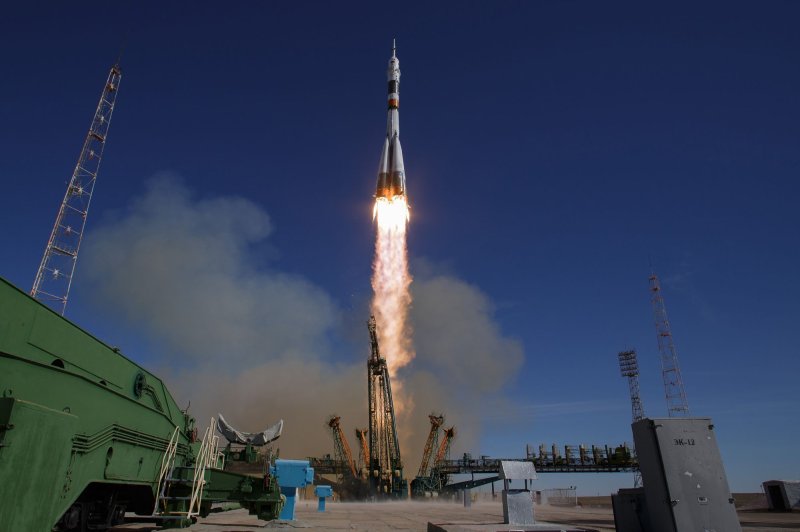Oct. 31 (UPI) -- Russian space agency Roscosmos said Wednesday it will fly a cargo mission to the International Space Station next month and a manned flight in December, following an aborted mission.
State-run news agency TASS reported Roscosmos will launch a Progress MS-10 unmanned rocket filled with supplies for the space station on Nov. 16.















